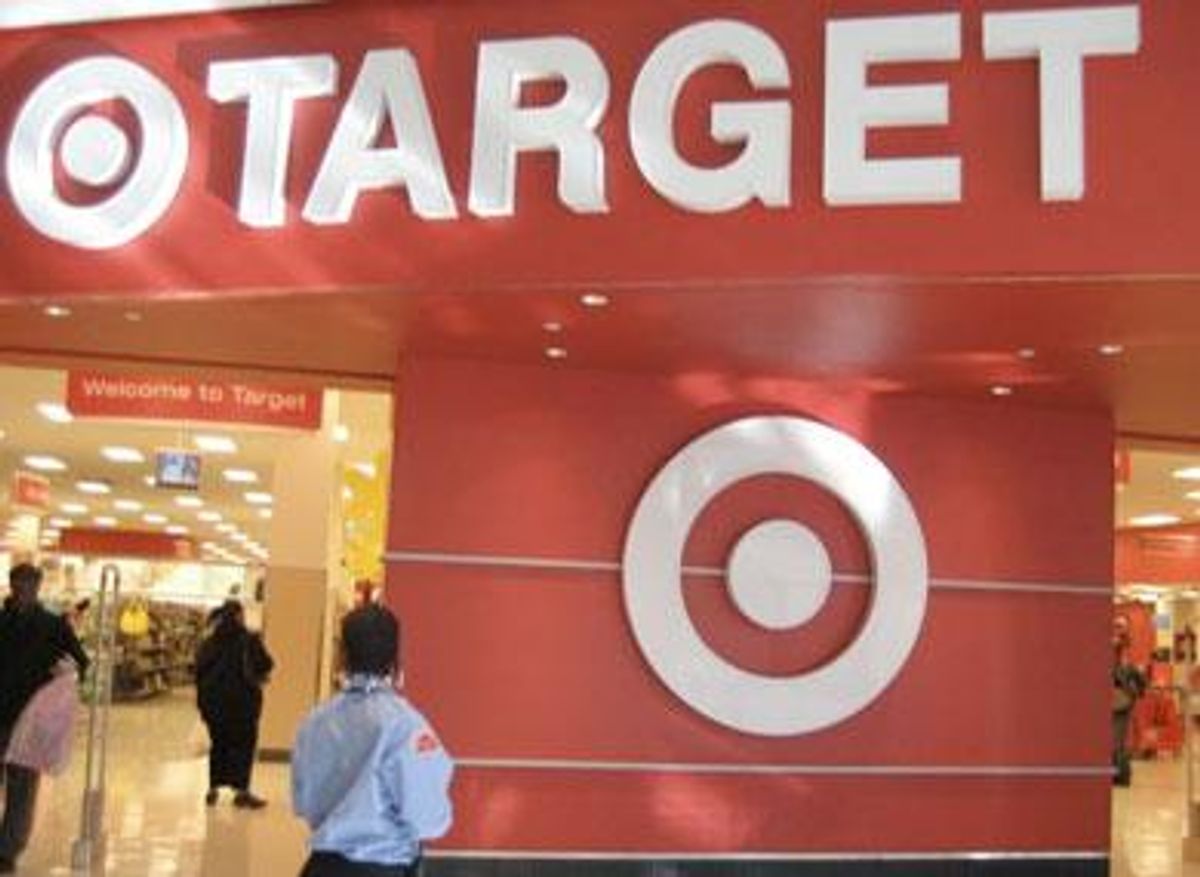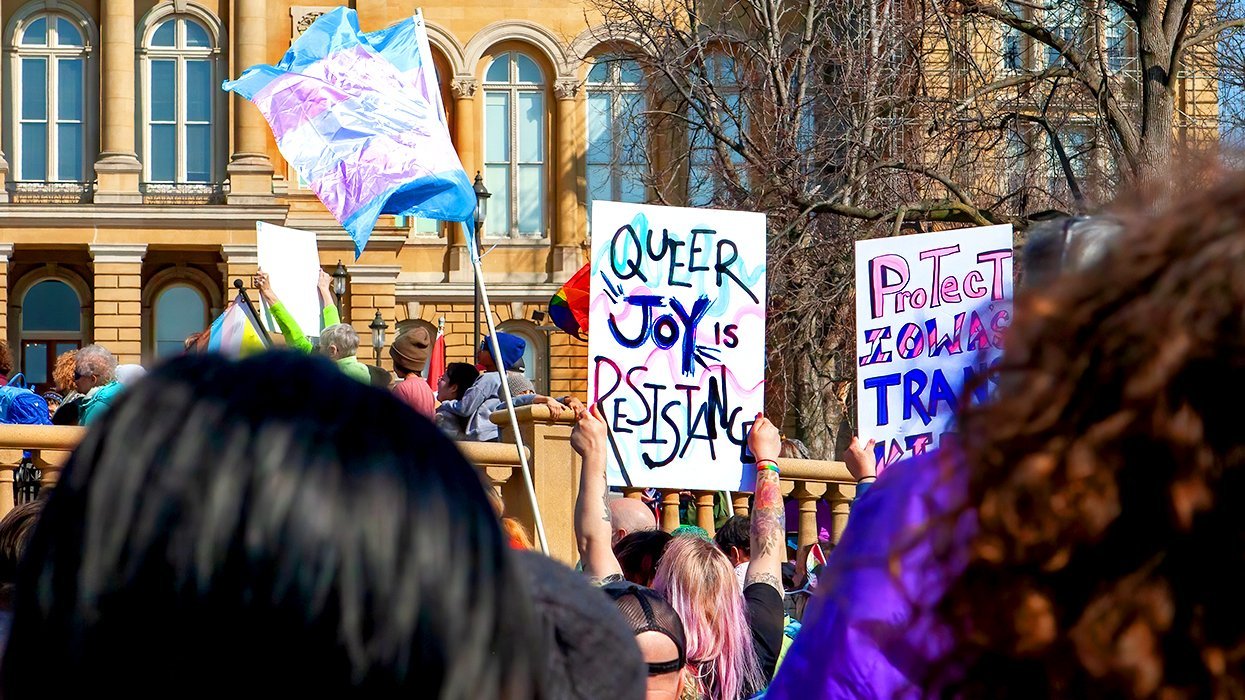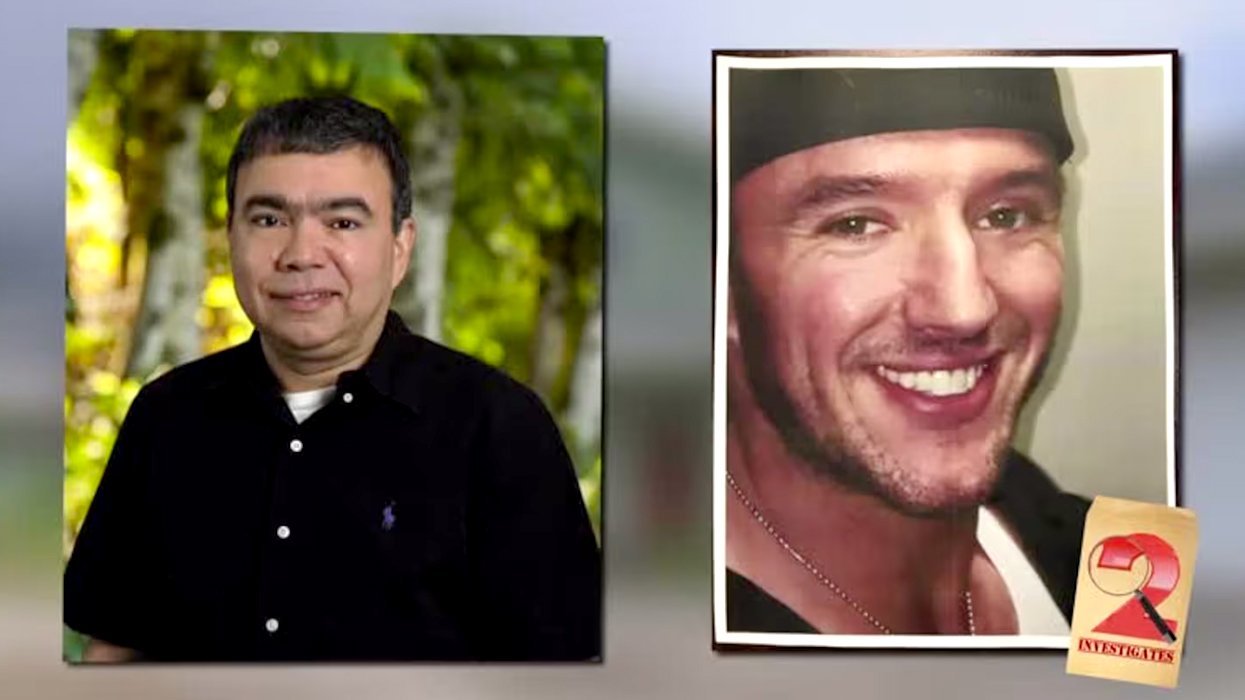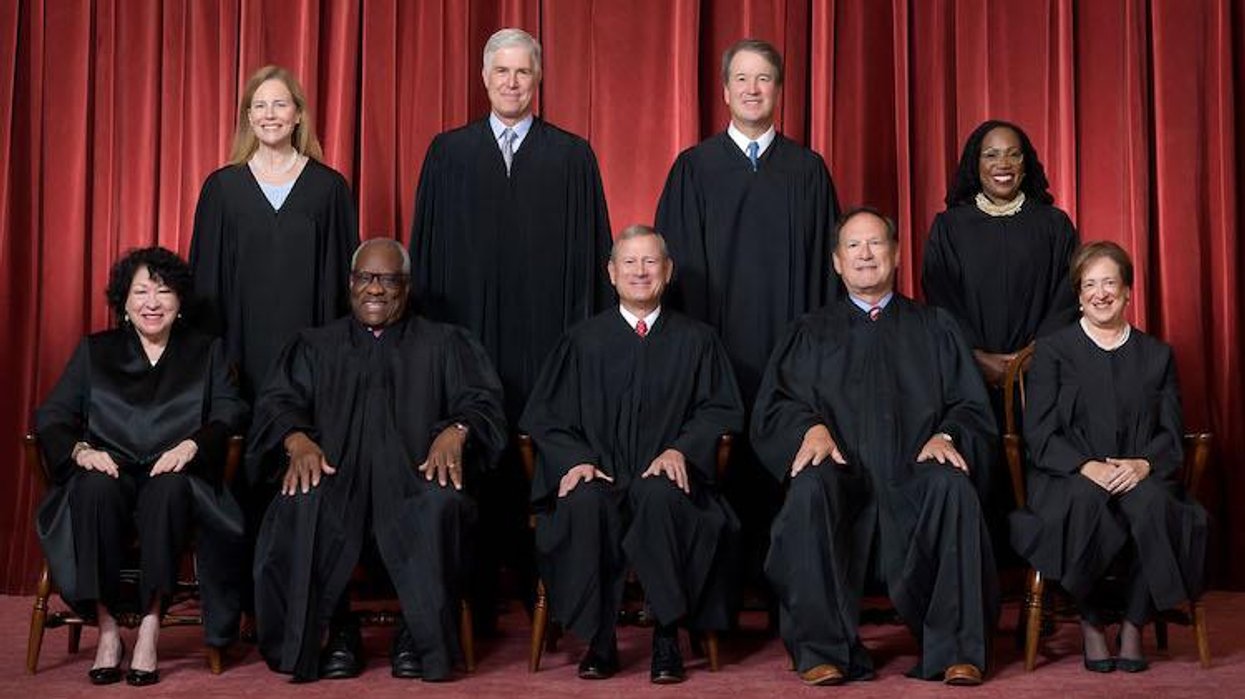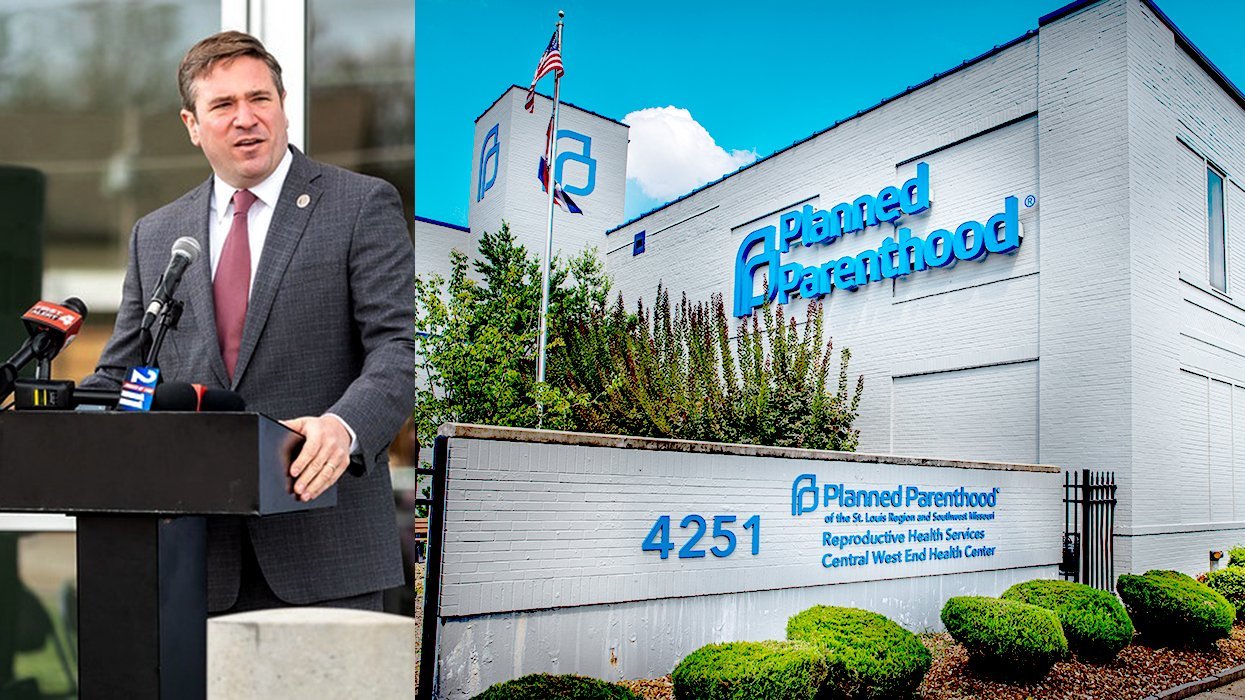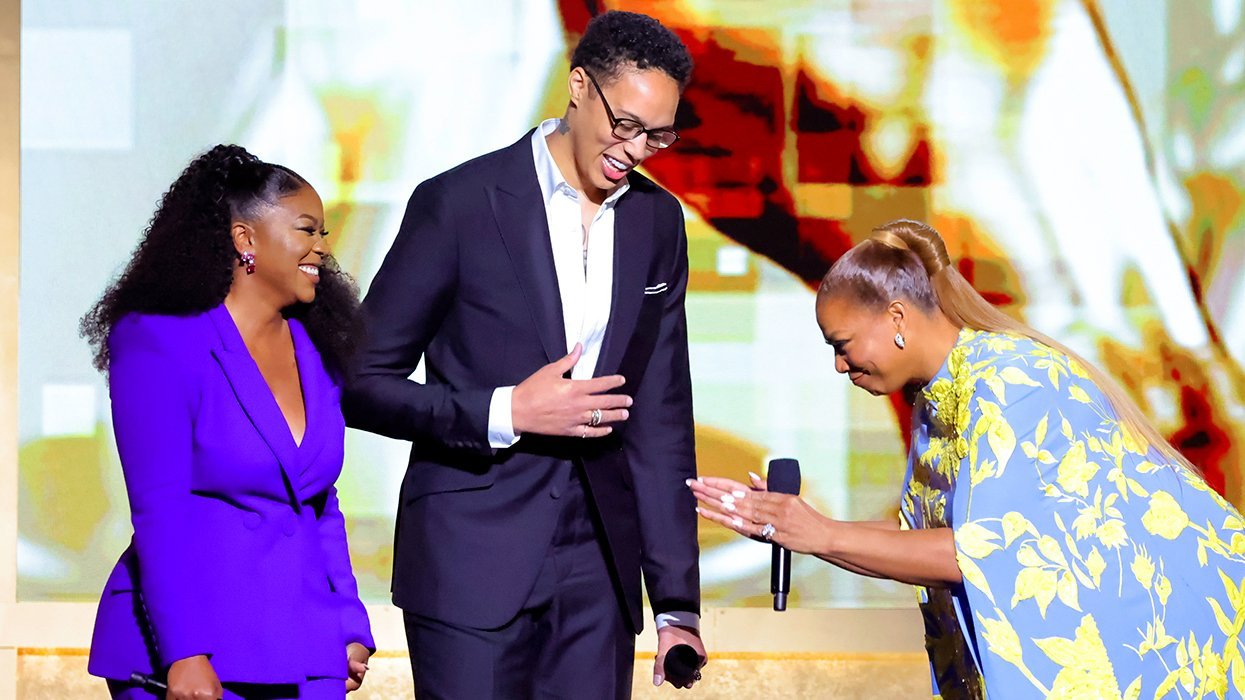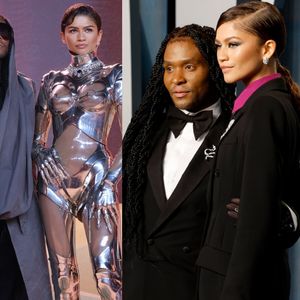CONTACTStaffCAREER OPPORTUNITIESADVERTISE WITH USPRIVACY POLICYPRIVACY PREFERENCESTERMS OF USELEGAL NOTICE
© 2024 Pride Publishing Inc.
All Rights reserved
All Rights reserved
By continuing to use our site, you agree to our Private Policy and Terms of Use.
Equality-minded little monsters undoubtedly put their paws up Friday when Lady Gaga announced that her exclusive album distribution deal with Target requires the company to support LGBT charity groups and reform its past support for antigay causes. Since last summer, the Minnesota-based retailer has been under fire, including a high-profile boycott and tarnished rating in the Human Rights Campaign's Corporate Equality Index, for a $150,000 donation to MN Forward, a group that backed failed Republican gubernatorial candidate and marriage equality opponent Tom Emmer.
"That discussion was one of the most intense conversations I've ever had in a business meeting," the pop star told Billboard magazine, assuring fans her deal with Target was "hinged upon their reform."
The Gaga exhalation followed related news that Target updated its political giving policy upon an internal review after the 2010 election cycle. The changes, first reported in the Washington Blade on Thursday, took effect last month and entail the establishment of a policy committee of senior executives who, in conjunction with the chief executive officer and oversight from the board of directors, will guide decision-making about financial support for political activities.
Responses to the new political giving framework ran the gamut from supportive to dismissive to wait-and-see among observers who spoke with The Advocate.
"I think it's a win," said Dot Belstler, executive director of Twin Cities Pride, which had met with Target about the MN Forward contribution. "They admitted they screwed up and as a result of the community outcry, they were able to actually move forward."
Twin Cities Pride is a past and potential future recipient of support from Target, which also plans to support Pride events in San Francisco and Chicago. Next year, in the fashionable downtown areas of both cities, Target plans to open "CityTarget," a scaled-down, hipper version of its store, in addition to openings in Los Angeles and Seattle.
In San Francisco last summer at the height of the controversy, gay former supervisor turned mayoral candidate Bevan Dufty initially fought the prospect of Target opening at two locations. He relented when he concluded a standoff would only alienate the powerful brand and eliminate opportunities for friendly pressure on issues like marriage equality and anti-bullying initiatives.
"Hopefully, it's a good step," said Dufty of the new policy. "But I think it's a step that reflects on how difficult the past several months have been for Target. This is the worst $150,000 they ever spent."
One group unwilling to budge from confrontation is MoveOn.org, which called for a boycott of Target in August and said it had no intention of recanting in light of the new announcement.
"Not much has changed," said Robin Beck, campaign director for Moveon.Org. "As far as we can tell, they've expanded the number of people who will be making decisions about the political giving they do. There's no apology for the giving they've done, there's no commitment to equality. There's no commitment to stop funding 527s. There's no commitment to not use corporate funds."{C}
Other questions pertain to the composition of the Target policy committee. Twin Cities Pride's Belstler said she understood the GLBT Business Council led by out director of enterprise Daniel Duty would have a "seat at the table," but a Target spokesperson would not confirm any participation. In an interview published this week, Duty described Target as "a great place to work" and said that several top executives were openly gay.
Target spokesperson Jessica Carlson declined to say how many people would be on the committee or to what extent equality would factor into their political giving decisions. She referred all inquiries to the new guidelines on the website.
Although the membership of the policy committee is unclear, people familiar with the changes said the panel would at least include more participants, which most interpreted as a positive sign.
"I think it's good that there's broader representation in the decision-making process," said Monica Meyer, executive director of OutFront Minnesota, which had criticized the Target contribution to MN Forward. "It allows for more input in looking at a number of factors that go into using corporate dollars to back a candidate," she said.
If recent patterns hold, the political giving by Target will continue to be Republican-leaning but not out of sync with other big-box retailers. According to the Center for Response Politics, the Target PAC gave nearly $250,000 to candidates for federal office in 2010, with 44% going to Democrats and 54% contributed to Republicans. By comparison, Wal-Mart and Best Buy gave $1.3 million and $79,000 respectively to federal candidates last year and tilted Democratic in contributions, though both companies have also favored Republicans in recent years.
Recipients of Target PAC money include Congresswoman Michele Bachmann, the marriage equality foe from Minnesota, the company's home base. The House Tea Party caucus founder, she also has received individual support from Target CEO Gregg Steinhafel and his family.
Corporations view political contributions through an increasingly complex lens of environments, markets and stakeholders, but giving is always an expression of business priorities. Still, when Target defended the contributions to MN Forward and Bachmann as economic decisions, it only enraged many loyal LGBT employees and store guests who held the brand known for progressive workplace policies and promoting gay designers to a higher standard.
"The nature of the political engagement that any company does is by definition subjective," said Bob Witeck, chief executive of Witeck-Combs Communications. "They may have some ground rules that guide it, for example, but if you're going to rule out a candidate or elected official who is really great on certain issues or not on others, you prioritize."
Looking ahead, some activists wonder how Target and partners like Lady Gaga will choose to prioritize next year, when Minnesota could face a constitutional amendment against marriage equality advanced by the Republican-controlled legislature. The Democratic governor Mark Dayton, who supports marriage equality, cannot stop such a proposal under the state rules.
"I think she's done a great job, I really do," said Charlie Rounds, a Minneapolis-based activist who raised concerns about a bad romance between Gaga and Target in the blogosphere. "I think she went out and went to bat, but I think we're going to have this conversation a year from now."
Want more breaking equality news & trending entertainment stories?
Check out our NEW 24/7 streaming service: the Advocate Channel!
Download the Advocate Channel App for your mobile phone and your favorite streaming device!
From our Sponsors
Most Popular
Here Are Our 2024 Election Predictions. Will They Come True?
November 07 2023 1:46 PM
17 Celebs Who Are Out & Proud of Their Trans & Nonbinary Kids
November 30 2023 10:41 AM
Here Are the 15 Most LGBTQ-Friendly Cities in the U.S.
November 01 2023 5:09 PM
Which State Is the Queerest? These Are the States With the Most LGBTQ+ People
December 11 2023 10:00 AM
These 27 Senate Hearing Room Gay Sex Jokes Are Truly Exquisite
December 17 2023 3:33 PM
10 Cheeky and Homoerotic Photos From Bob Mizer's Nude Films
November 18 2023 10:05 PM
42 Flaming Hot Photos From 2024's Australian Firefighters Calendar
November 10 2023 6:08 PM
These Are the 5 States With the Smallest Percentage of LGBTQ+ People
December 13 2023 9:15 AM
Here are the 15 gayest travel destinations in the world: report
March 26 2024 9:23 AM
Watch Now: Advocate Channel
Trending Stories & News
For more news and videos on advocatechannel.com, click here.
Trending Stories & News
For more news and videos on advocatechannel.com, click here.
Latest Stories
Supreme Court lets Idaho enforce law criminalizing gender-affirming care for minors
April 15 2024 8:47 PM
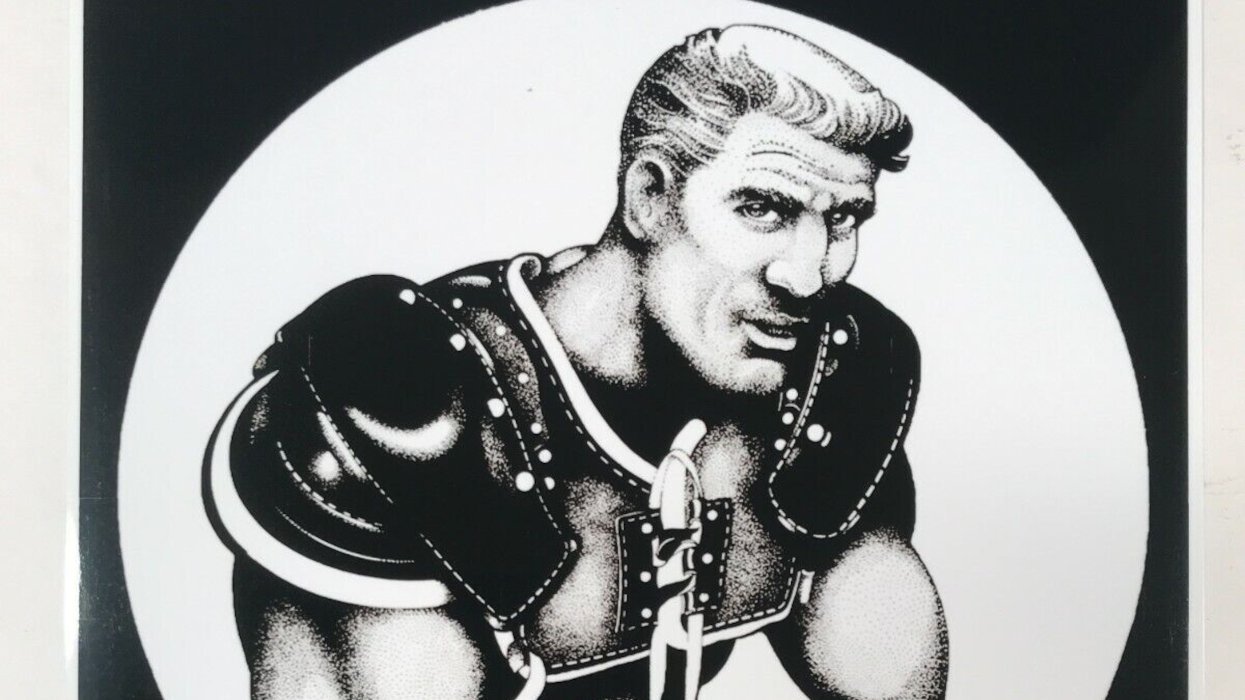
Plus
Yahoo FeedGay fetish artist Rex has died — see some of his sexy work
April 15 2024 8:13 PM
Brittney Griner and her wife, Cherelle, are expecting! Here's when baby Griner is arriving
April 15 2024 12:52 PM
Tennessee Senate passes bill making 'recruiting' for trans youth care a felony
April 14 2024 11:17 AM

